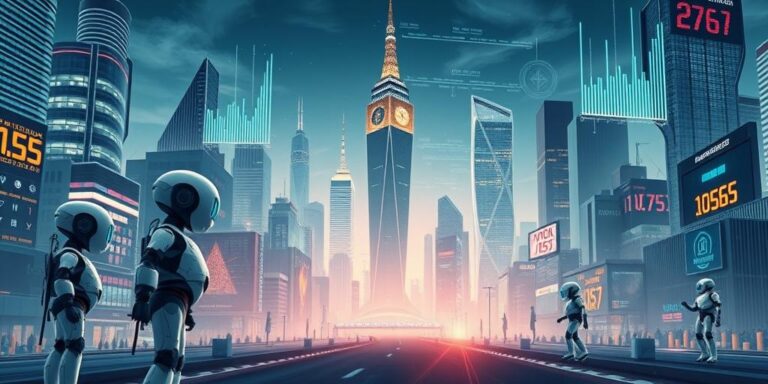Universal Basic Income in an AI-Dominated World (A 2030 Debate)
The year is 2030. Artificial intelligence has woven itself into the fabric of our daily lives, reshaping industries and redefining the very nature of work. As automation continues to advance, one concept has resurfaced as a potential solution to address the economic shifts: Universal Basic Income (UBI).
What is Universal Basic Income?
Universal Basic Income is a government program in which every citizen receives a regular, unconditional sum of money, regardless of their income, employment status, or any other criteria. The goal is to provide a safety net that ensures everyone can meet their basic needs.
The Rise of AI and Job Displacement
AI-driven automation has made significant strides across various sectors. Manufacturing, transportation, customer service, and even white-collar jobs are now increasingly performed by AI-powered systems. While this has boosted efficiency and productivity, it also raises concerns about widespread job displacement.
Arguments for UBI in an AI-Dominated World
- Economic Security: As AI takes over more jobs, a UBI could ensure individuals have a basic standard of living, preventing mass poverty and destitution.
- Stimulating the Economy: With a guaranteed income, people are more likely to spend money, supporting demand for goods and services, and counteracting potential economic downturns.
- Encouraging Entrepreneurship: UBI provides a safety net, allowing individuals to take risks and pursue entrepreneurial ventures without fear of total financial ruin.
- Investing in Education and Retraining: With basic needs covered, individuals can invest time and resources in education and retraining programs to adapt to the changing job market.
- Social Equity: UBI can reduce income inequality and provide a more equitable distribution of wealth in an era where AI-driven productivity disproportionately benefits a few.
Arguments Against UBI in an AI-Dominated World
- Cost and Funding: Implementing a UBI program can be incredibly expensive, requiring significant tax increases or cuts in other essential government services.
- Work Disincentives: Critics argue that UBI could discourage people from seeking employment, leading to a decline in the labor force and reduced overall productivity.
- Inflation: Increased demand without a corresponding increase in supply could lead to inflation, eroding the purchasing power of the UBI payments.
- Implementation Challenges: Determining the appropriate UBI level, managing the program’s logistics, and preventing fraud can be complex and challenging.
- Moral Hazard: Some argue that providing unconditional income can create a dependency on government assistance, undermining personal responsibility and self-reliance.
Alternative Solutions and Complementary Policies
- Job Guarantee: A government-funded program that ensures everyone has access to a job, providing a more direct link to employment and productivity.
- Enhanced Education and Training: Investing in education and retraining programs to equip individuals with the skills needed to thrive in the AI-driven economy.
- Tax Reforms: Implementing progressive tax policies, such as a wealth tax or a tax on automation, to fund social programs and reduce income inequality.
- Strengthening Social Safety Nets: Expanding existing social safety net programs, such as unemployment benefits and food assistance, to provide targeted support to those in need.
Conclusion
The debate surrounding Universal Basic Income in an AI-dominated world is complex and multifaceted. While UBI presents potential benefits in terms of economic security and social equity, it also raises significant concerns about cost, work incentives, and implementation challenges. As we move closer to 2030, it is crucial to carefully consider the potential impacts of AI on the labor market and explore a range of policy options to ensure a fair and prosperous future for all.




